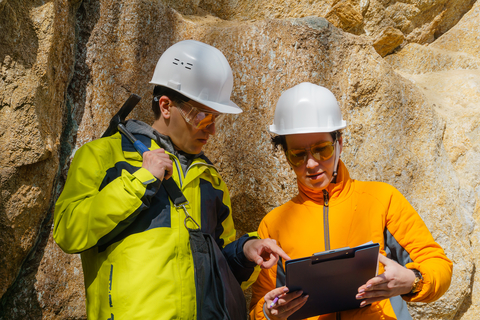
With the rise in industrial pollution, changes in government policies, and natural disasters like tsunamis, hurricanes, floods, earthquakes, volcanic eruptions, and lots more, there is no better time to build a career as a geologist than now. A geoscientist not only decodes reasons why these hazards occur but also forecast possibilities of a reoccurrence of these natural disasters in the near future. Simply put, a geologist is a great lifesaver.
Work Environment for Geologists
Geologists are in hot demand by many top companies that specialize in different fields. For an example of an employer, see Mount Sopris Instruments, geophysical equipment and software.
The largest employers of geologists include:
- Mining, quarrying, and oil and gas extraction industries
- Engineering industries
- Educational institutions
- Government agencies
- Architectural companies
Jobs You Can Do
If you have a thing for exploring earth alongside its mineral resources, then taking up a career as a geologist is the best life decision you’ll ever make. There are many job opportunities available to a geologist.
Check out the top jobs you can do with a geology degree
1. Geoscientist
A geoscientist studies the earth and its components. If you have a passion for data analysis, then a bachelor’s degree in geology will hand you an entry-level job in this field. For those who would like to consider taking up research work, then you will need more than a bachelor’s degree. A Ph.D. in geology will do just fine. Annual take-home pay for a geoscientist averages $112,000
2. Consulting Geologist
If you have a penchant for traveling to different remote locations both locally and internationally, a consulting geologist might be what you’re looking for. These experts perform lab test samples in the field. A bachelor’s degree in geology is the least educational qualification required to take up this profession. Annual take-home pay averages $116,000
3. MUD Logger
A Mud Logger comes in handy when it comes to mineral resources exploration. They supervise exploration projects and are highly skilled in data collection. Other responsibilities include carrying out scientific test samples and ensuring that lab equipment is properly installed and maintained for optimum performance. The annual salary of a Mud Logger is $102,000 on average.
4. Petroleum Geologist
The need for petroleum geologists is currently on the rise. A petroleum geologist spends more time in the outdoors researching oil fields. They ensure the smooth running of the oil and gas production process both onshore and offshore. A petroleum geologist earns $107,000 on average annually. This is one of the most lucrative job opportunities in the field of geology.
5. Hydrologists
These experts collect, process, and interpret data that relates to water resources. They research more about the water cycle and how it moves across and through the earth’s crust. More so, they focus on ways to mitigate the impact of drought, water pollution, and erosion on living things and the environment. With their skill and knowledge, they can help improve water quality.
It is however important to note that a career in geology might translate to spending more hours in the outdoors and traveling to remote locations. In the same vein, it is a financially rewarding career. Nonetheless, it is an exciting career choice for those who enjoy working in the field.

